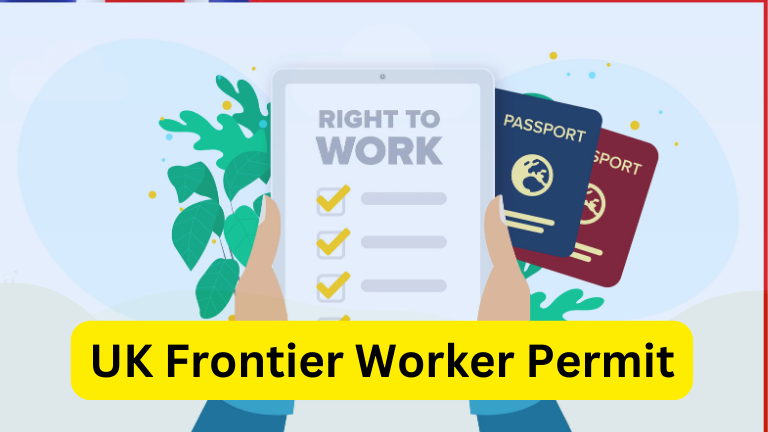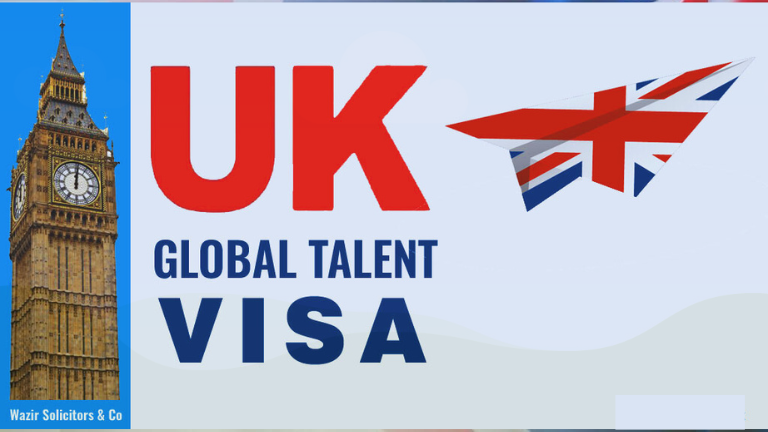
UK Frontier Worker Permit
The Border Work Permit is for cross-border workers who wish to work in the UK but live in another country. Find out more about the requirements and application process.
What is a cross-border worker?
A cross-border worker is someone who works in the UK but lives mainly abroad. If your employee was a cross-border worker on or before 31 December 2022, they could use their passport or national identity card to travel to the UK and work until 30 June 2023. From 1 July 2023, a new work permit is required for cross-border workers who work in the UK.
Who can apply for the cross-border worker permit?
It is important to understand that cross-border work permits are only available to European citizens who were already working here before the end of 2020. Cross-border work permit applicants must:
- Are from the EU or EEA (including Switzerland, Norway, Iceland or Liechtenstein)
- You live outside the UK
- Have started working in the UK by 31 December 2023
- If you were not working in the UK by 31 December 2023, you will need to apply for a visa rather than a cross-border work permit.
- Irish citizens are exempt from the need to apply for a cross-border work permit.
Who is eligible for frontier worker status?
Only citizens of the EU, Switzerland, Norway, Iceland, and Liechtenstein can apply for the cross-border worker permit scheme. Additionally, you must be classified as a principal resident outside the UK. You can meet the primary residence requirement if you have spent fewer than 180 days in total in the UK in a 12-month period. If you have spent more than 180 days in the UK in 12 months, you may still be eligible if you have returned to your home country at least once every 6 months or twice in the 12-month period.
Applicants for the cross-border worker permit scheme will also need to meet the requirements to work in the UK. The job requirements are as follows:
- You must have started working in the UK while living in another country by 31 December 2023.
- The type of work you do must qualify for the permit.
- You will usually need to have worked in the UK at least once every 12 months since you started working here.
Eligible work includes both employed and self-employed work; To be classed as eligible, your work in the UK must be “genuine and effective”, meaning it must be more substantial than one-off tasks. Eligible work does not include things like attending interviews, signing a contract, or entering a one-off competition.
Job Requirements
- Applicants must have a cross-border work permit
- started working in the UK while living in another country before 1 January 2021. This can be as an employee or self-employed
- For genuine and effective work: The Home Office will want to see that the work involves more than one-off tasks such as an interview or signing a contract.
- have worked in the UK as an employee or self-employed at least once every 12 months
- If you have been unable to work or have been unemployed in the UK for a period of 12 months, it may still be possible to obtain a cross-border work permit if you can demonstrate that you are:
- unable to work due to illness or injury
- unable to work because you were pregnant or had given birth
- unable to enter the UK and work due to COVID-19
- you are voluntarily unemployed and are undertaking vocational training related to your previous occupation
- involuntarily unemployed, but were looking for work in the UK or undergoing vocational training
- According to the cross-border worker guidelines, if you fall into the above scenarios, you will be classified as a “retained worker” or “retained self-employed worker”.
Can I apply for the cross-border worker furlough scheme if I am unemployed?
If you have been unable to work or have been unemployed in the UK for a period of 12 months, you may still be eligible for a cross-border work permit if you have maintained cross-border worker status. You can maintain your cross-border worker status if you have not worked for a 12-month period for one of the following reasons:
- You have been temporarily unable to work due to illness or injury
- You were temporarily unable to work because you were pregnant or had given birth
- You have been unable to come to the UK and work due to the COVID-19 pandemic
- You were voluntarily unemployed and undergoing vocational training related to your last job
- You were involuntarily unemployed and actively looking for work in the UK or on vocational training courses
Those who are involuntarily unemployed and looking for work can only hold cross-border worker status for 6 months if they have worked in the UK for less than a year before becoming unemployed. If they have worked in the UK for more than a year, they can maintain their status as long as they continue to look for work, however, they must be registered as a jobseeker and be able to demonstrate that they are looking for work.
How to request a cross-border worker permit
The application process is completed online, with the form used differing depending on whether you are in the UK or abroad.
At the time of application it will be necessary to provide a copy of:
- a valid passport or national identity card.
- an employment contract or contracts to work in the UK
- pay slips or copies of invoices for work carried out in the UK
If you have “maintained” status, you will need to provide proof of this. You will be provided with a precise list of documents that you will need to present when applying, as these will vary depending on the type of job. You will also need to prove your identity using the ‘UK Immigration: ID Check’ app by attending a local visa application center or UK Visa and Citizenship Application Services (UKVCAS) service point in the UK.
For information on maintenance status, see our article explaining the maintained right to remain
Fees for cross-border work permit
There is no application fee for the cross-border worker permit. You will also not be required to pay the Immigration Health Surcharge to access the UK’s National Health Service.
Conditions of the permit for cross-border workers
With a cross-border worker permit you will be able to:
- Travel freely in and out of the UK for work purposes
- Demonstrate your right to access public benefits and services
- Access healthcare from the National Health Service
- Prove your right to work or rent in the UK
With a cross-border work permit, you will not be able to:
- Settle permanently in the UK (you will need to hold a qualifying visa for a certain number of years, typically 5 years, to gain ILR)
- Bring your family members with you
- Validity of the cross-border worker permit
- Cross-border worker permits are generally granted for 5 years if you are classified as a cross-border worker. If you are a permanent worker, you will be granted leave for 2 years.
It is possible to extend your cross-border work permit as long as you continue to meet the eligibility requirements and have done so since you last applied. If you have lost your job or are no longer self-employed, you may still be able to renew your cross-border worker permit if you have maintained your status.
Cross-border work permit and ILR
Time spent in the UK on a cross-border work permit does not count towards ILR (Permanent Settlement in the UK). If you plan to settle in the UK, you will need to pass or apply for a different visa. Work and visas that count towards ILR include:
- Skilled worker visa
- Visa for innovators
- Start-up visa in the UK
- Expanded visa
- Global Talent Visa
Other options to consider include a family visa (if you have close relatives settled in the UK) or a late application under the EU Settlement Scheme (EUSS).



